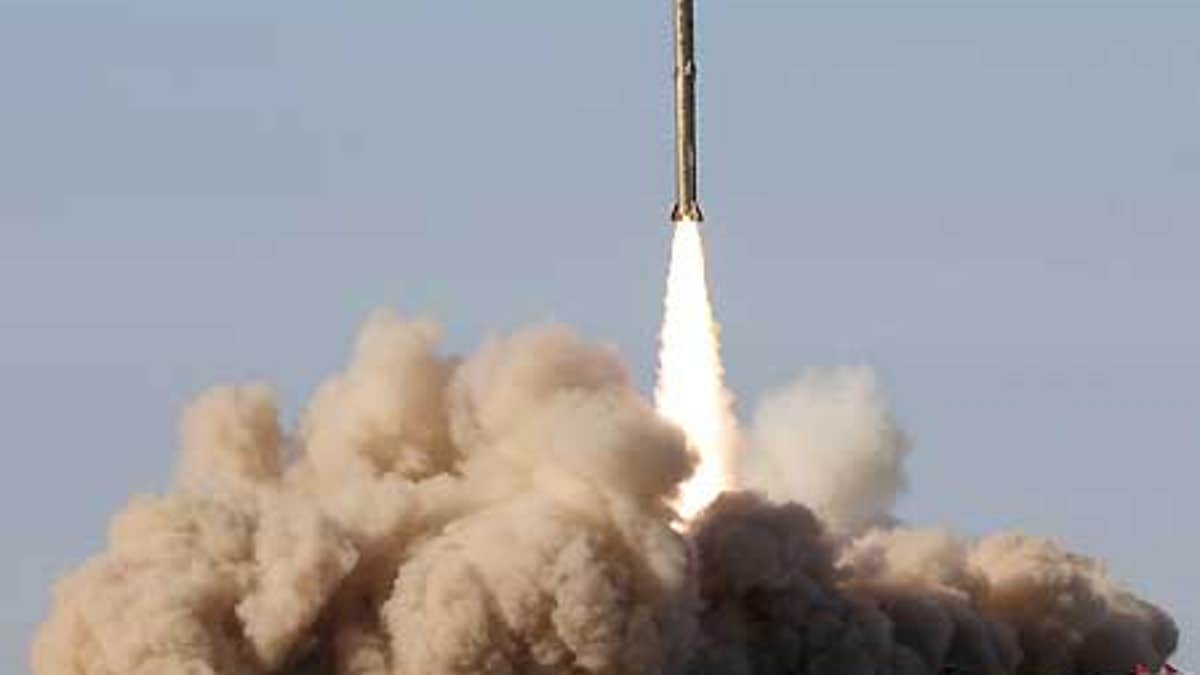
Nov. 12: Image taken at an undisclosed location in Iran, shows a missile test fire by Iranian armed forces. (AP)
Iran said it successfully test fired two short-range missiles during drills Sunday by the elite Revolutionary Guard, a show of force days after the U.S. and its allies condemned Tehran over a newly revealed underground nuclear facility that was being constructed secretly.
English-language Press TV reported that the solid-fuel Fateh-110, Tondar-69 and Zelzal missiles were test fired, but did not give specifics on range or other details. Both are short-range, surface-to-surface missiles.
Gen. Hossein Salami, head of the Revolutionary Guard Air Force, told reporters Iran tested for the first time a multiple missile launcher. Press TV showed pictures of at least two missiles being fired simultaneously and said they were from the latest drill.
Salami said the missile tests and military drills were meant to show Iran's strong resolve to defend its national values. The Revolutionary Guard controls Iran's missile program.
Reuters reported state radio as also saying Sunday that Tehran would test-fire a missile Monday capable of hitting Israel and U.S. bases in the Gulf region.
The tests came two days after Western intelligence officials and diplomats disclosed that Iran had been secretly developing a previously unknown underground uranium enrichment facility. The site in the arid mountains near the holy city of Qom is believed to be inside a heavily guarded, underground facility belonging to the Revolutionary Guard, according to a document sent by President Barack Obama's administration to lawmakers.
After strong condemnations from the U.S. and its allies, and a demand to open the site to international scrutiny, Iran said Saturday it will allow U.N. nuclear inspectors to examine the site.
Reuters reported Iran's ambassador to the U.N.'s nuclear agency watchdog, Ali Asghar Soltanieh, as saying Sunday that "fabricated Western clamor" over the facility would, however, negatively affect its talks with world powers.
Nuclear experts said the details that have emerged about the site and the fact it was being developed secretly are strong indications that Iran's nuclear program is not only for peaceful purposes, as the country has long maintained.
Iran has had the solid-fuel Fateh missile, with a range of 120 miles, for several years. It also has the solid-fueled, Chinese-made CSS 8, also called the Tondar 69, according to the Wisconsin Project on Nuclear Arms Control, a private group that seeks to stop the spread of weapons of mass destruction. The Tondar has a range of about 93 miles.
Iran has previously tested the Zelzal missile, versions of which have a range of 130-185 miles.
The Associated Press contributed to this report.
